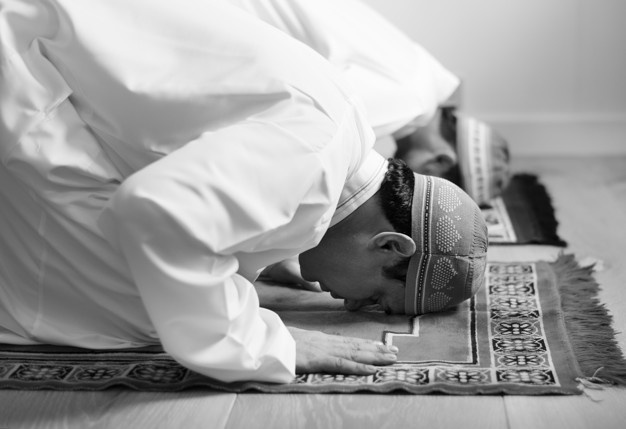‘Secular humanism’ has been identified as a challenge to maintaining a Muslim identity in the present age. [Picture: The Independent]
The world as we knew it is dead. I have, in recent months, heard the refrain that the world has drastically changed within the last three years – “since Covid”. It has. Now, people of faith are particularly under attack.
The unjust murder of George Floyd at the hands of police in the United States in 2020 sent shockwaves across the world. South Africa was no exception. Coinciding with the maturation of Gen Z, it sparked a global reckoning on racial injustice and reignited demand for reform in general.
In the years that followed, all sorts of ideas have been proffered about reform. There has been an overwhelming acceptance that the old system has serious defects.
“There’s a sentiment that Gen Z has been left with the bill of previous generations’ bad behaviour, which has compounded their rejection of the status quo … With climate change, persistent racial inequity, student loan debt, rising costs of living, and inaccessible healthcare (to name a few), Gen Z’ers may not feel like there is a status quo worth defending at all,” reads an article on Silicon Foundry.
While such demands should arguably never have had to happen, they have. And so too have a number of other social movements that have shaken the core of long-standing beliefs and value systems. It has also given rise to a progressive philosophy: secular humanism.
With it, a rise in attitudes against religion. A rise in disbelief, a rejection of centuries-old beliefs that have provided a moral compass to generation after generation. In Saudi Arabia for example, the heart of the Muslim world, a growing number of youngsters are abandoning Islam.
Noting its significant challenge to people of faith, Ml. Yusuf Patel, from Jamiatul Ulama South Africa (JUSA) defines secular humanism as “a conviction that dogmas, ideologies and traditions whether religious, political or social, must be weighed and tested by each individual and not simply accepted because of faith”.
SMread: How neglected dams led to devastating flood in Libya
What is the problem here?
Ml. Patel’s warning that secular humanism is one of the challenges Muslims need to face “head-on” is not a first. As far back as 1943, then Archbishop of Canterbury, William Temple, said Christian tradition was “in danger of being undermined by a ‘Secular Humanism’ which hoped to retain Christian values without Christian faith.”
The issue here, says Ml. Patel, is that secular humanism discards the notion of faith or religion. For example, the aspect of believing in the unseen is repudiated by secular humanists – directly contradicting the teachings of Islam.
“We are being conditioned to believe that, if you cannot see something do not believe in it. We have ‘belief in the unseen’ as the basis of our faith … This ideology is impacting our youth, graduates at universities, professionals, our schools, every sphere of our lives,” he cautions.
Furthermore, he says, secular humanists hold an understanding that “there are no absolutes, no eternal truths and no need for religion”. Again, this conflicts with religious beliefs.
“Humanists do not rely on Allah to solve their problems. In Islam, our value system, our worldview, is based not simply on ‘human rights’ as such. It is based on divine rights and human obligations, which is fundamentally different from the worldview that is based purely on human rights.”
SMread: Global Halaal Summit to unite Muslims on matters of faith and practice
What can be done?
Throughout history, waves of new movements have almost completely wiped out the status quo. In response, there have almost always been push-backs and counter-currents. It is the kind of thing that sparks deadly wars and obliterates humanity.
In seeking solutions to the wave of secular humanism, an attack on Islam and faith in general, Ml Patel says Muslims need to present a united front. “The cry of the hour is Muslim unity,” he says.
“Sectarian ruptures, creed prejudices, lust for power and intolerance for divergent views are but some of the causes of this malaise. We cannot allow ourselves to be further fragmented. We have to unite if we want to remain relevant and if we are going to preserve our identity and sense of belonging.”
Meanwhile, Moulana Ebrahim Bham, also of JUSA, says Muslims have to grapple with the fact that they live in a world with a plurality of religions. “We are living in a world in which not everyone is a Muslim. How do we deal in our own country with people who are of different faiths?”
This, he says, presents a “unique opportunity in an environment which is not conducive to righteousness, in an environment where people have become tired of nepotism, corruption and irreligiousity and moral decay”.
“We have a unique opportunity to share our faith, our values with people because we believe our faith has the answers and solutions. In doing so, we need to equip ourselves both spiritually and intellectually to meet the challenges of our time.”
